When nickel, titanium or zirconium alloys are not enough...
- Immune to numerous acids and chemicals (corrosion tables)

- Better corrosion resistance than nickel alloys, titanium or zirconium
- High strength and stiffness in vacuum and inert gas up to 2000°C (3600°F)
- Can become brittle when used in oxygen above 300°C
- High purity and biocompatibilty
- Physical Properties
- Tantalum grades, specifications and chemistry
- Datasheet for tantalum
- Tantalum set screw features and benefits
Tantalum set screws are best known for its unmatched corrosion resistance and chemical inertness. Tantalum screws have a similar corrosion resistance to that of glass, but all of the typical mechanical and electrical properties of a metal.
Tantalum set screws are also extremely stable at high temperatures, since tantalum has a melting point around 3000°C. High temperature applications require vaccum or inert gas since tantalum may embrittle when used in oxygen rich environments above 250°C. Tantalum set screws are also one of the most bio-compatible metals available and is also radio-opaque due to its high density (16.68 g/cm3).
All tantalum set screws are available in commercially pure tantalum and tantalum 2.5% tungsten (Ta-2.5%W).
Contact us to see if your required tantalum screws are in stock and how our engineers may help you with your tantalum fastener application.
Resources: Tantalum Torque Spec
Screw Types: Button Head Cap Screws, Flat Head Screws, Hex Cap Screws, Pan Head Screws, Set Screws, Socket Head Cap Screws, Tamper Resistant Security Screws,
Tantalum Set Screw Features & Benefits
Tantalum set screws are unique in that they have no screw head, meaning that they have no protruding part past the threaded shaft. They are thread only and are available with a socket or slotted driver insert at one end. Set screws are used to secure an object within or against another object. Typically they secure a rotating part such as a gear or shaft. Tantalum set screws are driven through a threaded hole in the rotating part until it is tight against the inner object, preventing from moving relative to the outer object. Set screws are available with various points depending on the application.
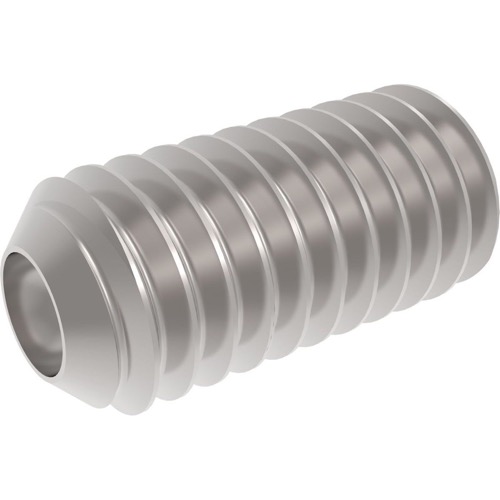
Cup Point
This is the most commonly used set screw and is identified by a cup-shaped indentation on one end. Tantalum cup points are typically used for a quick, semi-permanent or permanent applications where it is acceptable to cut the cup point edge of the screw.
Cone Point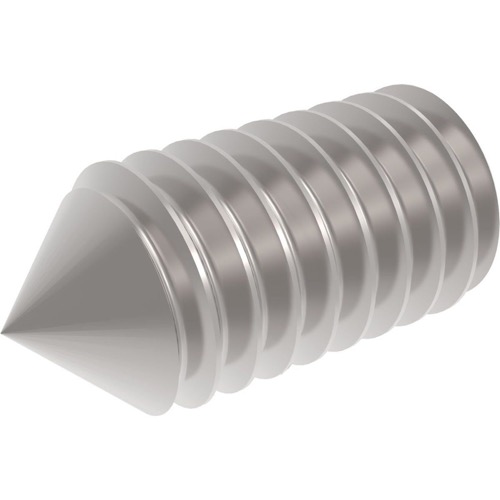
A cone point is easily identifiable by its sharp cone-shaped point – just like an ice cream cone. Tantalum cone point set screws deliver the strongest clamping force due to the deep penetration of the point. As a result they are used for permanent assembly.
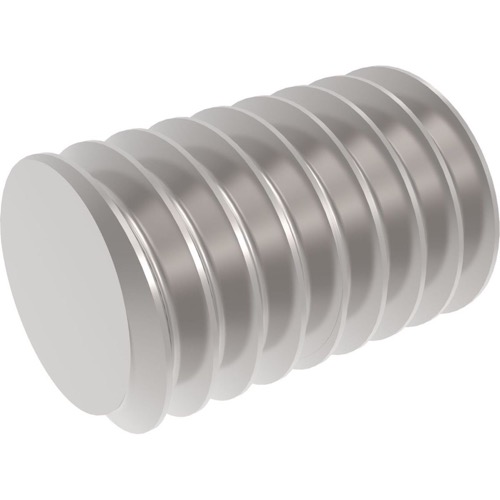 Flat Point
Flat Point
The cheapest and simplest of the set screw point styles, this screw has a flat surface on the bottom of the screw. This type is used when you need the ability to frequently change parts and require minimal shaft deformation.
Tantalum Grades, Specifications and Chemistry
Tantalum (Commercially Pure)
Commercially pure tantalum metal is 99.95% pure tantalum has some o the best corrosion resistant properties of any metal. While its corrosion resistance is exceptional, it is relatively soft and mechanically similar in strength to copper.
Tantalum Specifications: UNS R05200, ASTM B521, B708

Tantalum 2.5% Tungsten (Ta-2.5W)
This grade of tantalum alloyed with 2.5% tungsten provided better overall strength while maintaining its exception corrosion resistant properties. For tantalum fastener applications this is usually preferred.
Tantalum 2.5% Tungsten Specifications: UNS R05252, ASTM B521, B708

Physical Properties
- Density 16.6 g/cc
- Melting Point 3290 K, 2996°C, 5462°F
- Boiling Point 5731 K, 6100°C, 9856°F
- Coefficient of Thermal Expansion (20°C) 6.5 x 10(-6) / °C
- Electrical Resistivity (20°C) 13.5 microhms-cm
- Electrical Conductivity 13% IACS
- Specific Heat .036 cal/g/°C
- Thermal Conductivity .13 cal/cm(2)/cm°C/sec
Tantalum Tensile Data

Tantalum Iso-Corrosion Curves
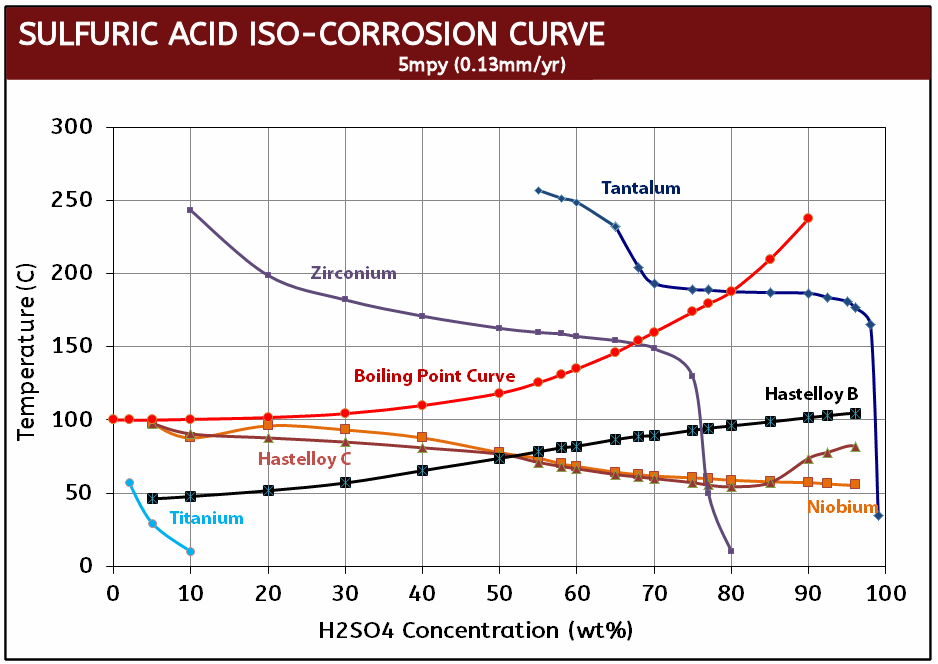
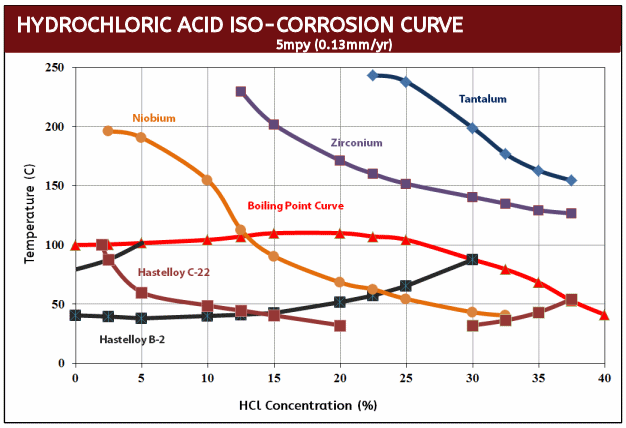
Tantalum Corrosion Resistance Table
TANTALUM SHOWS A NIL CORROSION RATE TO THE FOLLOWING MEDIAFor all temperatures up to at least 302F (150C) unless otherwise indicated | |||
Acetic acid | Chlorine, dry, <250°C (480°F) | Maleic acid | Potassium sulfate |
TANTALUM SHOWS LIMITED CORROSION RESISTANCE TO THE FOLLOWING MEDIA | |||
Air,>300°C (570°F) | Hydrogen, >300°C (570°F)Hydrogen fluoride | Potassium hydroxide, conc. | Sodium hydroxide, conc. |
